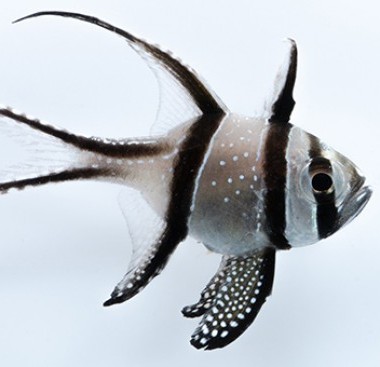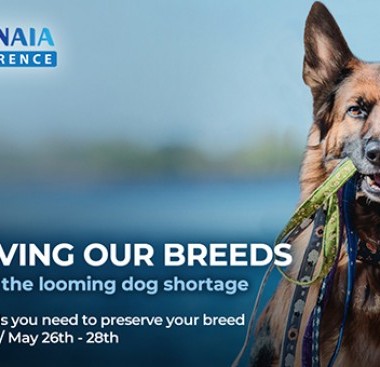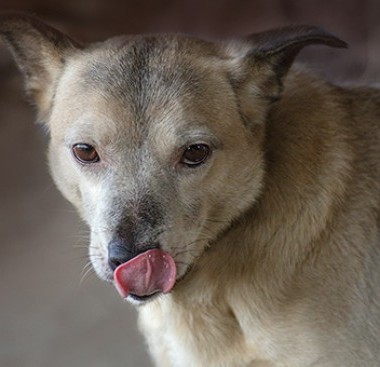ALERT: NAIA OPPOSES PAWS S. 1139
THE PET ANIMAL WELFARE STATUTE OF 2005
By: Staff Date: 07/7/2005 Category: | Animal Legislation |
US Senator Richard Santorum of Pennsylvania has introduced S 1139, a bill to amend the federal Animal Welfare Act. Dubbed the Pet Animal Welfare Statute of 2005, this bill poses a dilemma for animal welfare advocates: On one hand, it proposes amendments to bring people who import dogs for resale into the system and to provide USDA with better enforcement tools, goals that are worthy of support. On the other hand, it veers from its original purpose to regulate commercial breeders who sell wholesale into a scheme to regulate breeders by the numbers they produce and sell, an untenable goal that NAIA cannot support.
The question is whether it’s possible in the current political environment to make any substantive improvements to the Animal Welfare Act without simultaneously creating unacceptable consequences. NAIA firmly believes that any amendment must support and strengthen the Act’s fundamental intent – to regulate the handling of animals in commerce – not weaken it by expanding its scope to other categories of animal breeding and sales.
Unfortunately, this fundamental intent has been blurred by multiple attempts to amend it in recent years. Driven by animal activists who oppose pet breeding, these attempts have changed both public and government perception of AWA goals and hampered efforts to identify remaining problems and devise workable solutions. As a result, the one-page law passed in 1966 has become a patchwork of amendments and regulations extending to an ever-growing array of species in an ever-expanding number of settings. The goals of the Act are still laudable, but they cannot be reached by expanding federal oversight to small scale breeders who produce puppies and kittens as a hobby or avocation in their homes.
Animal industries have significantly upgraded their animal-handling practices in the years since the act was first adopted. Abuses that were commonplace several decades ago are relatively rare today. While recognizing that the AWA spurred many of these changes, we believe that what is needed now is better enforcement of the current Act. We do not believe that the USDA should broaden its coverage to parties based on numbers or any other artificial standard.
The search for real solutions
The federal government should not expand its authority beyond the large wholesale commercial operations they were intended to regulate. Instead, the Department should seek ways of reducing the number of people currently regulated so that it can focus its resources on the areas of greatest risk. Changing the original focus of the AWA from large commercial operations to residential breeders is a bad idea that would unnecessarily strain USDA’s budget, take resources and attention from where they are needed and improperly expand the scope of federal authority into private homes, something the Act was never intended to do. Even if the initial regulation of wholesalers occurred because all of the large-scale commercial breeders of the day sold through middlemen, the intended licensees were still large commercial businesses, not small in-home breeders.
Many of the states where large commercial kennels operate already have their own kennel inspection programs that are working very well. At the local level, counties fund agencies to enforce anti-cruelty laws. In addition, large national dog and cat associations like the American Kennel Club (AKC) and Cat Fanciers Association (CFA) have significant, time-tested inspection programs in full operation. As a result of these innovations, which are functions that did not exist when the AWA was passed, some kennels are inspected by as many as three entities a year, a wasteful and inefficient practice.
NAIA believes that USDA should consider leveraging the authority and expertise of state agencies and private associations that have reasonable inspection programs so they can focus their resources on enforcing current laws and closing down the few operations responsible for most of the problems. Such a plan would allow large and small retail sellers to be inspected and investigated locally unless the violations include circumvention of the federal law.
Over-regulation always leads to unintended consequences, a fact that animal advocates must keep in mind. The stunning growth of pet imports suggests that American breeders cannot keep up with the marketplace demand for pets. If the current zeal for ever more regulations continues and conscientious breeders elect to give up breeding rather than welcome the federal government into their homes, the number of imports from totally uninspected foreign kennels will grow to meet that demand. Many of these animals may carry contagious diseases that can threaten our pets, native wildlife, and even our own health.
The AWA should not be expanded to include residential breeders. Instead, its current provisions should be strengthened and enforced. People who seek better handling of animals in today’s commercial pet trade should work with USDA and other regulatory bodies and stakeholder groups to create an appropriate response for today’s challenges.
NAIA will continue to oppose the use of numbers as a threshold for regulation and to support efforts to strengthen the original purposes of the AWA where necessary. We will issue statements and alerts as developments warrant.
1. Doris Day Animal League vs Veneman (USDA) 2003 decision.
2. “Please visit http://capwiz.com/naiatrust/home to access the internet tool which you may use to send an email message to your senators regarding your opinion on PAWS.”
About The Author
All Authors Of This Article: | Patti Strand |












